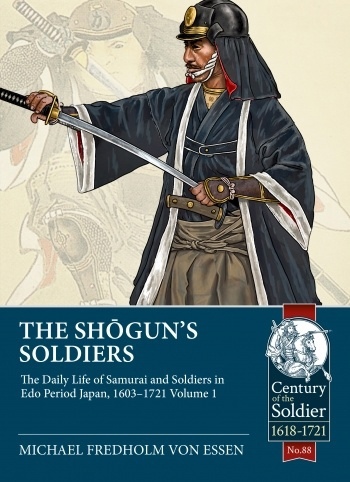Издательство:
Helion and Company
Год:
2022
Описание:
Tokugawa Ieyasu's decisive victory at Sekigahara in 1600 concluded the civil wars, confirmed his position of military supremacy as shogun (generalissimo) of Japan, and inaugurated the Edo period (1600-1868), so named because Ieyasu after the battle established his capital in Edo (modern-day Tokyo). By then, Japan was an advanced, outward-looking country.
Previously preoccupied by internal warfare, Tokugawa-ruled Japan was unified, strong, and technologically developed to a degree inferior to Europe only in certain sciences, such as shipbuilding and artillery. Japan was technologically superior in some disciplines, including the production of firearms, an import the Japanese had mastered very quickly. Japanese traders, mercenaries, and adventurers were a common sight in South-East Asia. There were flourishing Japanese overseas colonies, especially in the Philippines, Siam (now Thailand), and Java. One Japanese merchant-adventurer even managed to set himself up as a minor king in southern Siam.
Japan was a strong military power as well. The armies of Japan were a match for any enemy, well-armed and with considerable combat experience. However, the government of Japan in 1635 retreated into enforced seclusion, a seclusion aided by the geographical situation of the Japanese islands. The seclusion laws were rigorously enforced.
As the age of enlightenment, the industrial revolution, and the subsequent global expansion of the European nations transformed the world, Japan chose isolation and stagnation. A major reason for this policy decision was military weakness. The Tokugawa army under Ieyasu had been numerically large, experienced, and well-equipped, but since then, things had changed. Having defeated their enemies early in the century, the shogunate warriors settled down in castle towns. Many Tokugawa retainers settled permanently in Edo. There they soon lost the military edge they once had enjoyed.
After 1615, the shogun's soldiers were no longer needed for war. Technically, there was no demobilization. However, with no more wars to fight, the shogun's soldiers in all but name became townsmen. They retained samurai status but were no longer called up to fight. Yet, a Tokugawa army of sorts still existed.
Ключевые слова: Восточная Азия, Япония, история, внешняя политика, внутренняя политика, XVII век.



Комментарии
Добавить комментарий